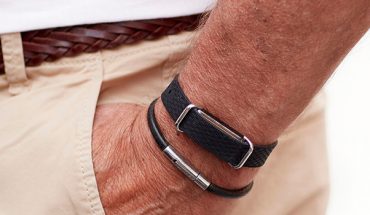We’re on the heels of recreational cannabis becoming legal in Canada. And for those who support and/or use it, a particular issue is coming to light: why is the industry so male-focused?
At the HempFest Cannabis Expo that took place in mid-September in Toronto, Katie Pringle, owner of Canndora, a female-focused company that sells cannabis accessories, expressed her belief that cannabis culture simply doesn’t cater to women. And that relates both to the products that can be used with cannabis, and the clinical research around it.
Clinical Research Around Cannabis Use and Women

Sabrina Ramkellawan, founder and CEO of (CIMA)
Sabrina Ramkellawan, founder and CEO of the Canadian Institute for Medical Advancement (CIMA), says there’s a clear male bias in clinical research. Women, for example, absorb cannabis differently than men, because women have different body types, metabolisms, and muscle mass.
What’s more, she adds, ironically women tend to have higher rates of some of the medical conditions that cannabis commonly treats, from severe migraines, to anxiety, and sleep disorders. That makes women just as likely to be candidates for use, if not more so, than men.
But there are also unique concerns for women. The Canadian Institutes of Health Research notes that cannabis can effect menstrual cycles, reproductive systems, and fertility. Ironically, many female users of medical marijuana likely use it to ease the symptoms of severely painful periods or even menopause.
“The biggest lack of information is in accurate dosing, and all body metrics are at play there,” says Lisa Harun, co-founder and CMO of Toronto-based cannabis accessories company Vapium. “It’s not even just a matter of gender, but a matter of age, weight, whatever other conditions you’re suffering from.”

Lisa Harun, co-founder & CMO of Vapium
Vapium is exploring a deeper relationship with nurses, specifically in Ontario, as a key touch point between a doctor and a patient, to help ensure things like accurate dosing on the medical end of the market.
It’s clear that more work needs to be done on providing clinical research relating to women and the use of cannabis.
Cannabis Accessories for Women
Beyond the clinical research, women also feel neglected when it comes to products that appeal to the fairer sex.
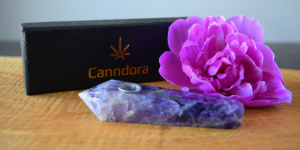 A lot of companies have the ‘make it pink’ mentality, says Harun, as if simply turning something pink will make it appeal to women. “It’s not like that anymore,” she says, “and I don’t think it has been like that for a long time.”
A lot of companies have the ‘make it pink’ mentality, says Harun, as if simply turning something pink will make it appeal to women. “It’s not like that anymore,” she says, “and I don’t think it has been like that for a long time.”
This has sparked a new wave of female entrepreneurs launching cannabis stores and products targeted towards women. And it is creating a wealth of business opportunities as we prepare for legality in Canada. These companies are offering thoughtful solutions, says Harun, that work to address women’s issues like PMS with bath soaps and body rubs.
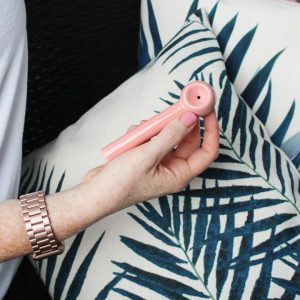 Vapium makes products like vapourizers and pens to help people consume the plants. And there’s a shift towards smaller and more dainty-designed items. “I won’t call them dainty,” Harun clarifies, “but more ergonomically correct. Women have smaller hands. We want things that we’re able to be agile with. But also taking into consideration how a woman consumes, and making it convenient and discreet and to fit with her lifestyle as opposed to having to buy products that have cross-appeal or that have been designed for a man by a man.”
Vapium makes products like vapourizers and pens to help people consume the plants. And there’s a shift towards smaller and more dainty-designed items. “I won’t call them dainty,” Harun clarifies, “but more ergonomically correct. Women have smaller hands. We want things that we’re able to be agile with. But also taking into consideration how a woman consumes, and making it convenient and discreet and to fit with her lifestyle as opposed to having to buy products that have cross-appeal or that have been designed for a man by a man.”
Liken it to the also historically male-dominated technology industry. We’ve moved beyond the basic black and products emblazoned with sports team logos and other traditionally male imagery to headphones, smartphone cases, portable speakers, wearables, and more that are stylish and refreshed in design to appeal to more feminine sensibilities.
 But when you think of cannabis accessories, you still likely picture gaudy designs with green cannabis leaves all over them, or big, bulky, and frankly, ugly devices. This mindset is not only archaic from a design perspective, but it contributes to the stigma behind usage for women.
But when you think of cannabis accessories, you still likely picture gaudy designs with green cannabis leaves all over them, or big, bulky, and frankly, ugly devices. This mindset is not only archaic from a design perspective, but it contributes to the stigma behind usage for women.
Emma Baron is co-founder of Milkweed Toronto, an online cannabis accessories company. But prior to that, she used to work in a medical marijuana shop. And she has seen the stigma first-hand, telling the CBC in a recent interview that she’d frequently see elderly women coming into the shop and feeling embarrassed to purchase anything. Harun agrees, noting lots of pushback around mothers, or even women overall, engaging in cannabis use.
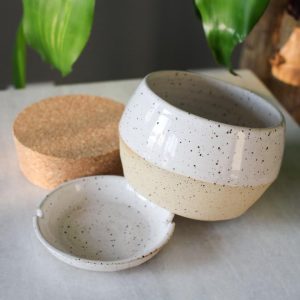 The latest female-focused cannabis accessories are discreet, more stylish, and, in some cases, focus specifically on the needs of women. These range from copper stash tins, to gold-painted ceramic pipes, pre-rolled and embossed blunts, and topical ointments.
The latest female-focused cannabis accessories are discreet, more stylish, and, in some cases, focus specifically on the needs of women. These range from copper stash tins, to gold-painted ceramic pipes, pre-rolled and embossed blunts, and topical ointments. 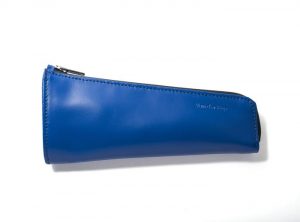 Companies like Van der Pop, owned by April Pride, add more sophistication with glass stash containers, a leaf grinder necklace, and jewel-encrusted vape pen. Pringle cutely calls her gear accessories for “elevated women.” Online store Hemlock Rose calls its feminine cannabis accessories “smokeware,” as if they’re simply another set of items to stock in the kitchen pantry.
Companies like Van der Pop, owned by April Pride, add more sophistication with glass stash containers, a leaf grinder necklace, and jewel-encrusted vape pen. Pringle cutely calls her gear accessories for “elevated women.” Online store Hemlock Rose calls its feminine cannabis accessories “smokeware,” as if they’re simply another set of items to stock in the kitchen pantry.
Erasing the Stigma, Increasing Research
It seems, then, that we need both more cannabis products that appeal to women, and to erase the stigma around women using cannabis, as well as more research to educate and inform users of the risk, benefits, and how cannabis can and might impact women differently from men. And given that legal cannabis is coming soon, there’s a ticking clock.
On October 17, 2018, recreational use of cannabis will become legal in Canada for anyone over the age of 19, in private residences only. The only legal outlets for purchasing cannabis itself will be the government-run Ontario Cannabis online Store, though private retail sales will start in April 2019, at which time homeowners will also be allowed to grow up to four plants per household. A year from then, on October 17, 2019, the sale of edibles, and concentrates like CBD oil, will also become legal.
“We got involved in the industry,” says Harun, “because we do believe that cannabis is medicine. So how do you make it safe, because it has been stigmatized for so long. But with good technology and conscious consumption, that’s about to change.”
Related:
Cannabis Tech Incubator Works with Budding entrepreneurs, Female Founders



